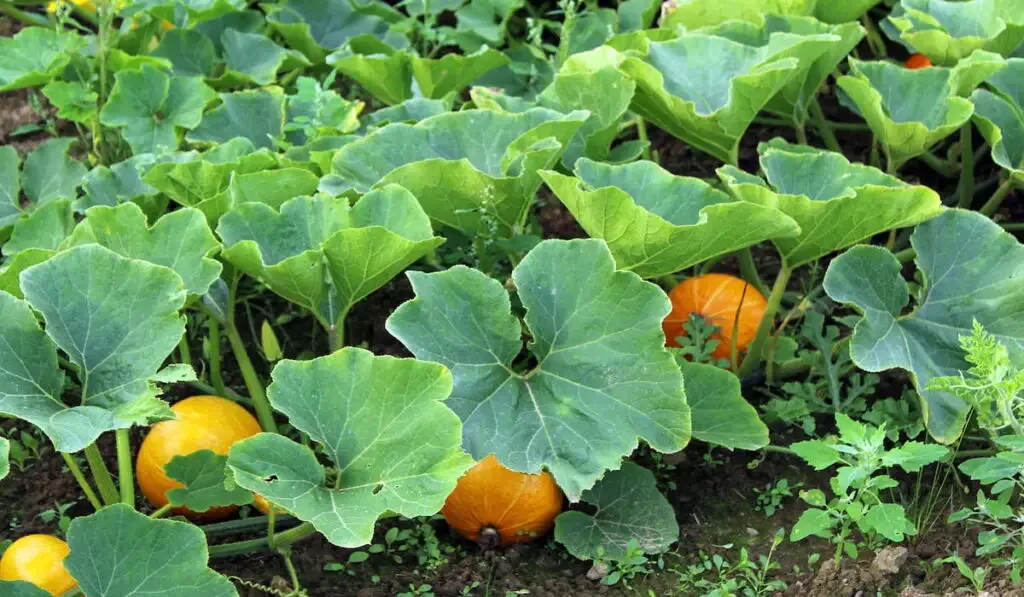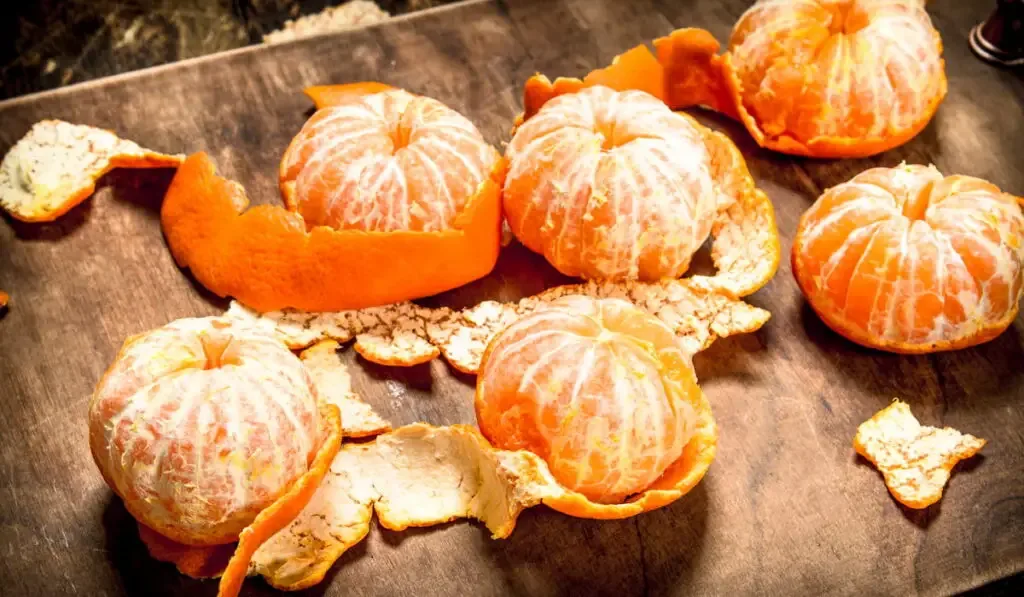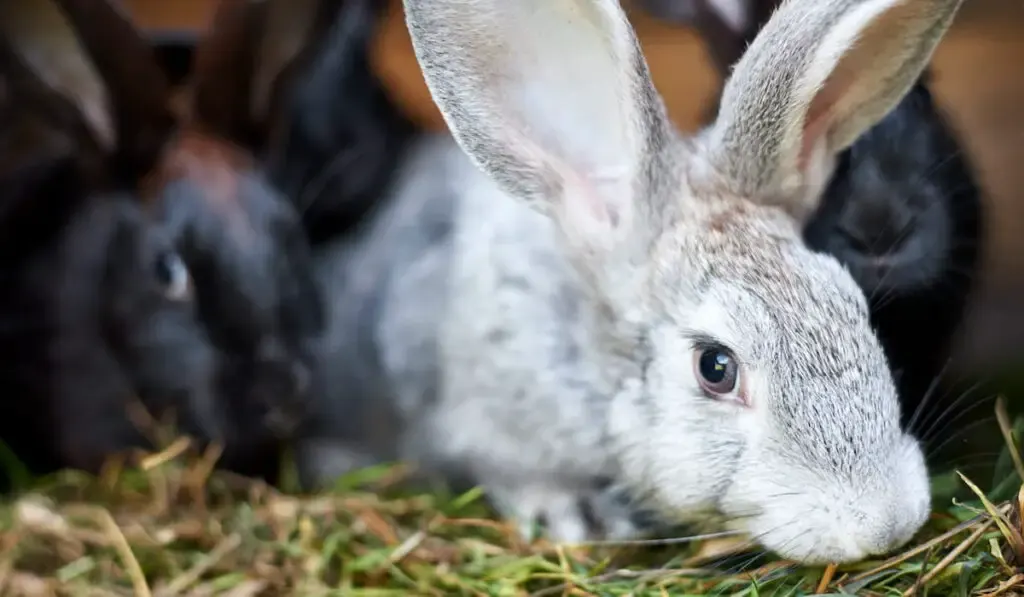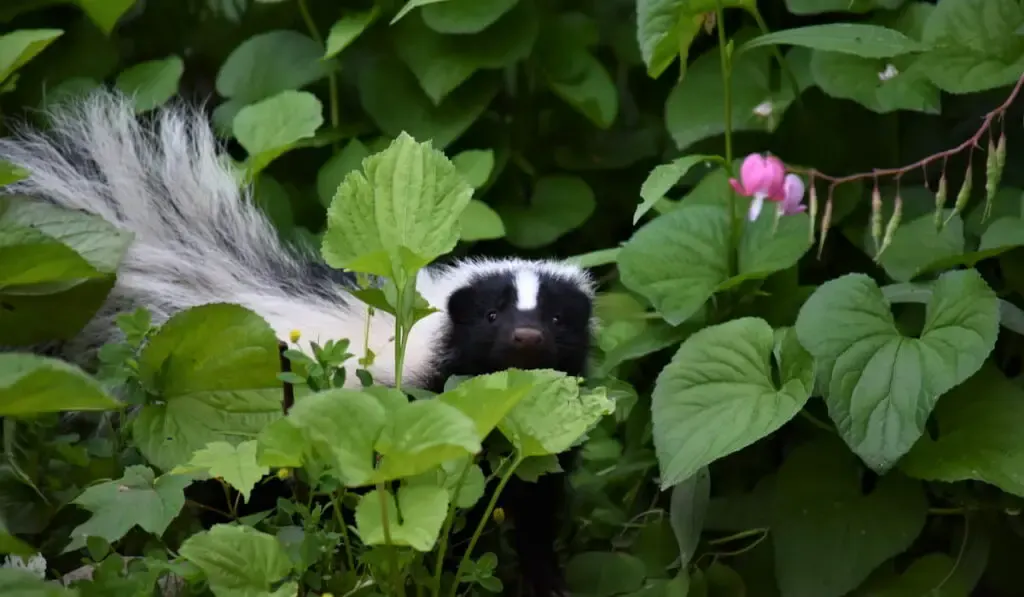Do you have a skunk problem in your pumpkin garden? A skunk in your garden is bad news for multiple reasons.
How sure are you that skunks are eating your pumpkins? If so, how do you prevent them?
Skunks do eat pumpkins and they can destroy your pumpkin plants if you do not prevent them from reaching the plants.
Preventing skunks from reaching your pumpkins is fairly easy, and there are many ways to prevent skunks from entering your garden.
How can you tell that there are skunks in your garden? How can you prevent skunks from entering your garden? We’ll answer these questions and more in this article.

Table of Contents
Do Skunks Eat Pumpkins?
Skunks are omnivorous animals. As an omnivore, a skunk eats a lot of foods including animal and plant products. This means that your fresh ripening pumpkins are not safe from a foraging skunk.
Well, you just can’t conclude that there are skunks in your garden without investigating. Let us discuss how you can tell if there are skunks in your garden or not.
Signs that Skunks Are in Your Pumpkin Garden
Some telltale signs that skunks are guilty of your pumpkin problems are:
- When You See Them: The first and most important method to know that you have a skunk problem is when you see a skunk in your garden with your eyes (or a camera). This is all the proof that you need.
- Spray Odor: Skunks are very popular, but not for the right reason. If skunks frequently visit your garden, you may perceive the odor of their spray once in a while.
- Undigested Insects in Dropping: While skunks eat a lot of foods, they usually do not quickly digest insects. This means that if you find poop in your garden and you see undigested insects in it, there are probably skunks in your garden.
- Holes in Bed Looking for Grubs: Skunks love to eat grubs. If your garden soil is nutrient-rich and full of grubs, skunks will frequently visit in search of grubs. They also will eat your pumpkins if they have the chance.
- Feeding Damage On Lower Parts of a Plant: Another way to tell that there are skunks in your garden is if you see the way they eat your tall plants such as corn. If the bite marks are in the lower parts of the plant and you cannot find any in the upper parts, the culprit is probably a skunk. Animals such as raccoons will usually eat the upper parts.
- Most Active in Spring: If there are skunks in your garden, you will notice everything listed above happen more regularly in spring.
Now that you can tell whether there are skunks in your garden or not, how can you prevent them?

How to Prevent Skunks from Entering Your Pumpkin Garden
Here are different methods to prevent skunks from getting close to your pumpkins:
1. Light Repellent
This method is the best and also one of the safest ways to repel skunks. Skunks are nocturnal animals. This means that movement in the night and light repels them. All you need to do is to install lights in your garden.
If you want a more sophisticated approach, you should consider installing motion sensors that turn on the light when they sense movement in your garden at night.
2. Fencing Your Garden
If you have not already done so, you should build a fence around your garden. You can use wood, mesh, or any material that you like to build your garden fence. You should protect the lower parts of the fence with mesh so that skunks cannot pass through.
If you do not want to build a fence, however, you can protect your pumpkins by growing them in a mesh cage. Your pumpkins can climb the mesh cage and the cage will also protect them from skunks or other critters wanting to eat them as a snack.
3. Remove Organic Wastes from Your Garden or Properly Seal Them
Skunks visit your garden regularly because there are so many types of foods that they can eat and these foods are usually always available. Aside from insects and plants, skunks also eat some food wastes and things you consider waste in your waste bin or compost pile.
You should lock the lid of your compost barrel and keep your garden clean and tidy so that skunks will not have a lot of foods to consume in your garden.
4. Spray a Mixture of Castor Oil and Dish-Washing Detergent Diluted in Water
When you mix castor oil and detergent together, you create a product that is a good skunk repellent.
Spray this product in different areas of your garden, especially your fence area, and also close to the pumpkins. Note that you may have to spray this product regularly to continually repel your skunks.
5. Citrus Peels

The peels of citrus fruits such as oranges, limes, and lemons can slightly repel skunks. If you just ate some citrus fruits, take their peels to your garden.
The peels do not just repel skunks, they will also decompose and act as nutrients for your garden plants.
6. Pet Urines
Skunks are naturally afraid of larger animals that can kill and eat them. If you have pets such as dogs and cats, you can collect their urine and spray it on your pumpkin plants.
The urine of predators acts as a repellent for skunks. Note that the most effective urine is coyote urine.
7. Ammonia-Soaked Rags
Skunks hate the smell of ammonia. You can get ammonia from a garden shop near you. Dissolve the ammonia in water and then soak rags in the solution. You can keep the rags close to your pumpkins or you can keep them near your garden fence as they help to repel skunks.
Note that you need to replace the rags or re-soak them often.
8. Strong-Smelling Soap
If you have a strong-smelling soap or deodorant, you should use it for your skunk problems. Spray the soapy water around your pumpkins and also at the lower parts of your garden fence.
You should see fewer skunks in your garden when you repel them with this soapy water with a strong smell.
9. Call in the Professionals
If you have tried your best and you still happen to find skunks in your garden, you should call professionals. They have their humane methods of trapping skunks and releasing them somewhere else. Search for local pest control agents near you.

Other Animals That Eat Pumpkins
Here are some examples of animals that can eat and destroy your pumpkin plants:
- Deer: Deer can eat every part of your pumpkin plants, so you do not want deer near your garden at all.
- Rabbits: Rabbits are destructive. They will eat from every fruit and can even kill your pumpkin plants.
- Mice and Moles: If you see a lot of holes in your garden, it could be moles. Mice are also culprits when you see little bite marks in your pumpkins.
- Woodchucks: While woodchucks are very destructive, you can easily prevent them from entering your garden by using skunk prevention tips.
- Chipmunks and Squirrels: Squirrels and chipmunks will likely wait until your fruits are becoming ripe before they eat them. Make sure that no tree outside the garden extends its branches into your garden.
Related Questions and Answers
1. What Should You Do With Bad Pumpkins?
If your pumpkins are going bad, you should throw them into your compost pile or feed them to any insect larvae that you are culturing (such as mealworms).
You should not eat bad and moldy pumpkins. You can also bury them in your garden soil if you do not have a compost pile or when winter is coming.
2. Are Skunks Dangerous?
Skunks are not dangerous. They are in your garden to find food and not to harm you. Well, you should be careful around skunks so that they do not make you smelly with their spray.
Note that skunks pose a threat to small farm animals such as chicks and other young birds.
3. Can Skunks Make Pumpkins Smelly?
Skunks only release their spray when they are shocked or afraid. Skunks will not spray on pumpkins, so your pumpkins will not have a foul smell even if skunks go close to them.
4. What Else Do Skunks Eat?

Aside from pumpkins, some other items that skunks eat are:
- Insects: Grub worms, mealworms, cicadas, etc.
- Seeds and Nuts: Corn, peanuts, barley, etc.
- Small Mammals: Rats, squirrels, and moles.
- Earthworms, nematodes, and other similar organisms.
- Soft plant parts such as young leaves and flowers.
They surely have a lot to eat in your garden.
5. Should You Feed Wild Skunks?
Only feed skunks if you want them to visit your home regularly. Remember that they can wreak havoc in your garden, so it is best if you do not feed them.
Final Thoughts
Skunks eat a lot of things and pumpkins are a tempting meal for them. Skunks can visit your garden to eat insects and fruits. They can damage your garden plants, so you should do all you can to prevent skunks from entering your garden.
